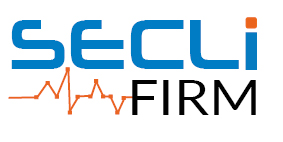Overview of the SECLI-FIRM project
The Added Value of Seasonal Climate Forecasting for Integrated Risk Assessment (SECLI-FIRM) is a EU H2020 project will run for 42 months (February 2018 – July 2021) and aims to demonstrate how the use of improved climate forecasts, out to several months ahead, can add practical and economic value to decision-making processes and outcomes in both the energy and water sectors. The project will promote research advances in the most effective seasonal forecasts for specific applications, as well as the uptake of seasonal forecasts by industry, expanding the climate services market.
SECLI-FIRM will provide accurate information to aid the implementation of relevant decisions to all levels of energy management. Meteorological variables have a significant impact upon many segments of industry, including the power price through renewable productions (solar, wind and hydro) and power demand, and on gas demand (especially in winter).
Energy organisations, both involved in the project and not, will benefit from seasonal climate forecasts. Improvements in management decisions will ultimately lead to an improved supply-demand balance in the energy sector, and therefore to a more efficient energy system. This will be particularly useful in the renewable energy sector and with corresponding benefits for climate change mitigation.
The project objectives are:
- To characterise the end-user requirements and associated decision-making uses for a wide range of stakeholders, using case studies to identify the climate-dependent factors relevant to management decisions.
- To optimise climate prediction performance and overcome identified limitations in forecast skill and to maximise reliability, usefulness and potential economic value to stakeholders by developing a multi-model seasonal prediction dataset.
- To quantify the value-add of climate forecast to decision-making, using case studies to evaluate the benefits of the optimised seasonal products.
Download the SECLI-FIRM Poster
To get involved or request more information please go to the project website or email: Prof. Alberto Troccoli: a.troccoli@uea.ac.uk

